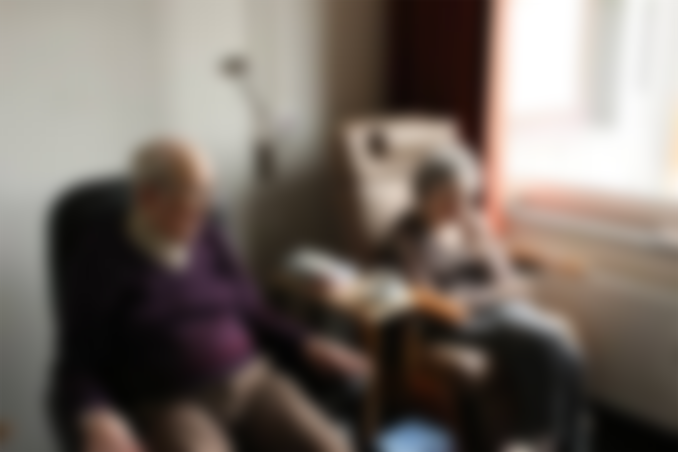All people can't escape aging. If you believe that age is just a number, well that's not what it really is. You can't escape the ravages of old age, and that's reality. We age as years passed. We can't hide the fact that our body undergoes a lot of changes as we age.
Around the age of 25, the first signs of aging start to become apparent on the surface of the skin. Fine lines appear first and wrinkles, a loss of volume, and a loss of elasticity become noticeable over time.
But take note that dementia, or severe memory loss that interferes with daily life, is not part of the normal aging process.
The Normal Aging Process

The Normal Aging process can start as young as the age of 30. The process of aging includes many changes in the body.
Physical activities such as walking long distances or walking uphill may become more difficult due to the stiffening of arteries and blood vessels that makes the heart work harder.
Bones shrink and reduce in density, making them more fragile and likely to break. Cartilage in joints may start wearing away, which can cause some pain or stiffness.
Muscles lose strength, flexibility, and endurance over time. Muscle mass decreases 3-5% every decade after 30 years of age, and that rate increases over age 60.
The ability for the bladder to stretch and then go back to its normal shape may be reduced. This may cause the bladder to hold less urine than before, resulting in more frequent trips to the bathroom. Changes in the bowel can lead to constipation.
Skin loses elasticity too, resulting in wrinkles in some people. It also thins and becomes more delicate, making it easier to get bruises and cuts.
Changes in vision can include far-sightedness, a result of the hardening of the lens. Cataracts, a clouding of the lens in the eye that affects vision, may develop. This can cause blurry vision and ultimately blindness if not treated.
Aging is a process with many changes, and it may take a little getting used to. Some people may be depressed, although others may have a sense of fulfillment and feel happy with their lives.
Normal aging may mean slower processing speeds and more difficulty with multitasking, but routine memory, skills, and knowledge are stable and may even improve with age.
It’s normal to occasionally forget recent events such as where the combs were last placed or the name of the person you just met.
When Aging is not Normal?
We all know that people aged. But needing help with everyday tasks can be a sign of dementia, which is not part of normal aging. Although dementia mainly affects older people, it is not a normal part of aging. Worldwide, around 50 million people have dementia, and there are nearly 10 million new cases every year.
A report shows that Caridad Sanchez, a veteran Filipina actress, was diagnosed with Dementia recently.
What is Dementia?

Dementia is a syndrome in which there is deterioration in memory, thinking, behaviour, and the ability to perform everyday activities.
This is one of the major causes of disability and dependency among older people worldwide.
It has a physical, psychological, social, and economic impact, not only on people with dementia but also on their carers, families, and society at large.
Signs and Symptoms of Dementia
The signs and symptoms linked to dementia can be understood in three stages.
Early-stage: the early stage of dementia is often overlooked because the onset is gradual. Common symptoms include:
forgetfulness
losing track of the time
becoming lost in familiar places.
Middle stage: as dementia progresses to the middle stage, the signs and symptoms become clearer and more restricting. These include:
becoming forgetful of recent events and people's names
becoming lost at home
having increasing difficulty with communication
needing help with personal care
experiencing behavior changes, including wandering and repeated questioning.
Late-stage: the late stage of dementia is one of near-total dependence and inactivity. Memory disturbances are serious and the physical signs and symptoms become more obvious. Symptoms include:
becoming unaware of the time and place
having difficulty recognizing relatives and friends
having an increasing need for assisted self-care
having difficulty walking
experiencing behavior changes that may escalate and include aggression.
A neurological condition caused by the build-up of fluid in the brain, infections, and Vitamin B12 deficiency, such as hypothyroidism (underactive thyroid), normal pressure hydrocephalus can mimic dementia symptoms.
Additionally, some prescription and over-the-counter medications can cause dementia-like symptoms too.
Impact of Dementia on Families and Carers
Dementia can be overwhelming for the families of affected people and for their carers. Physical, emotional, and financial pressures can cause great stress to families and carers, and support is required from the health, social, financial, and legal systems.
Healthy behaviors have been shown to prevent cancer, diabetes, and heart disease may also reduce the risk of memory loss.
8 Ways to Improve Brain Health and Reduce the Risk of Dementia

Quit smoking. Quitting smoking now may improve your brain health and reduce your risk of heart disease, cancer, lung disease, and other smoking-related illnesses.
Maintain a healthy blood pressure level. A lot of adult people globally have high blood pressure, and many do not have it under control.
Manage cholesterol levels with exercise and, if needed, cholesterol medications.
Maintain a healthy weight. Healthy weight isn’t about short-term dietary changes. Instead, it’s about a lifestyle that includes healthy eating and regular physical activity.
Get enough sleep. Sleep is important because it enables the body to repair and be fit and ready for another day. Getting adequate rest may also help prevent excess weight gain, heart disease, and increased illness duration.
Stay engaged. There are many ways for older adults to get involved in their community. Find ways to stay engaged in your community.
Manage blood sugar. Learn to manage your blood sugar if you have diabetes.
If you drink alcohol, do so in moderation‒up to one drink per day for women and up to two drinks per day for men.
In addition, reduce hazards in your environment that could lead to falls or head injury.
Treatment and Care

There is no treatment currently available to cure dementia or to alter its progressive course. Numerous new treatments are being investigated in various stages of clinical trials.
The principal goals for dementia care are the following:
early diagnosis in order to promote early and optimal management
optimizing physical health, cognition, activity, and well-being
identifying and treating accompanying physical illness
detecting and treating challenging behavioral and psychological symptoms
providing information and long-term support to carers.
The Bottom Line
It is best to best to be aware of the early signs and symptoms of this illness. Be attentive and mindful of the and drugs that can be linked to Dementia. Don't ignore the symptoms and overlooked it.
More than half of people with memory loss have not talked to their healthcare provider, but that doesn’t have to be one of your family members or you. Never hesitate to talk with your medical provider if you observe any changes in memory or an increase in confusion, or just if you have any concerns.
Sources:
All Images from Unsplash
https://www.cdc.gov/aging/publications/features/dementia-not-normal-aging.html
https://www.who.int/news-room/fact-sheets/detail/dementia#:~:text=Dementia%20is%20a%20syndrome%20in,million%20new%20cases%20every%20year






My sister in law working with a couple with dementia. Although she said it was hard, because sometimes they don't recognize her or the husband not recognizing the wife most of the time it's full of comedy going around. Then my sister in law will remind him, that's your wife and he will say, "why did I marry her for?"and they all laughing lol But seriously speaking, dementia is no joke, the people suffering from it and their families suffers so much pain. X